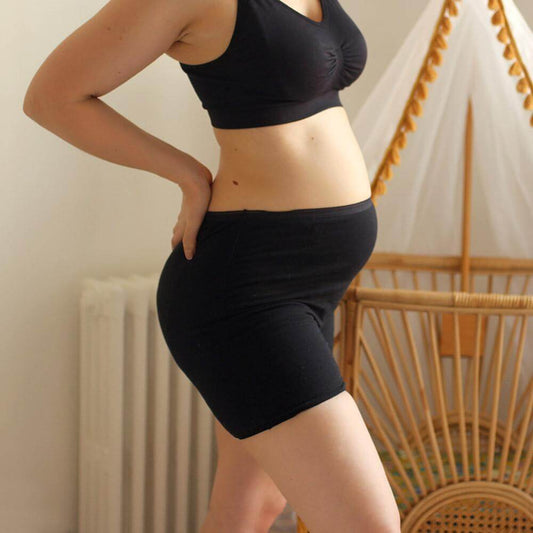Le SOPK qu’est-ce que c’est ? Comment survient-t-il ?
Le SOPK, ou syndrome des ovaires polykystiques est une maladie hormonale qui est à ce jour la maladie hormonale la plus fréquente.
Pour en savoir plus : Qu'est-ce que le syndrome des ovaires polykystiques ?
Le SOPK est dû à un dérèglement hormonal. En effet, les personnes atteintes de SOPK ont une sécrétion anormale d’hormones masculine, c’est-à-dire d’androgène. De ce fait, aucun follicule n’est plus dominant qu’un autre.
Quelles sont les conséquences du SOPK ?
Le SOPK provoque un dérèglement des cycles hormonaux. Cela peut conduire à des cycles un peu plus longs, aux alentours de 35, 40 jours. Mais on peut également avoir une absence de règles, ce qu’on appelle une aménorrhée. Or par définition quand on n’ovule pas, cela impacte également la fécondité puisqu'il n'y a pas d’ovule, pas d’œuf. L’excès de sécrétion d’hormones masculines peut aussi causer de l’acné, une pilosité importante, mais également une chute de cheveux. Des troubles métaboliques, c’est-à-dire une insulinorésistance, peuvent aussi être observés chez les personnes souffrant de SOPK. Donc plus de risque de diabète, plus de risque de surpoids, plus de risque d’hypertension artérielle, mais également plus de risque cardiovasculaire au sens large. Pour autant, une personne souffrant de SOPK ne va pas nécessairement présenter tous les symptômes précédemment cités. Certains n’en auront qu’un, d’autres les auront tous et de façon plus ou moins importante d’une personne à l’autre.
Comment minimiser les symptômes du sopk ?
Ce qu’il est important de retenir c’est que les symptômes peuvent être exacerbés selon votre indice de masse corporelle, mais également votre alimentation et votre activité physique. Au plus vous avez une alimentation équilibrée, au plus le poids est régulé et au moins vous serez embêtée par les symptômes du syndrome des ovaires polykystiques.
Comment prédire ses règles quand on a un SOPK ?
Il est évident que ne pas savoir quand ses règles vont arriver est handicapant dans la vie de tous les jours puisqu’elles peuvent survenir à n’importe quel moment, dans une situation parfois délicate. Le premier conseil que l’on peut vous donner c’est d’observer votre corps. Votre corps vous parle. Vous pouvez ainsi observer vos pertes vaginales. Effectivement la glaire cervicale a tendance à s’épaissir, à être plus abondante, plus élastique, au moment de l’ovulation. L’astuce est de noter, pendant plusieurs mois d’affilée, lorsque vous remarquez des changements dans votre corps. Peut-être que vous allez remarquer des changements au niveau de vos pertes au moment de l’ovulation, et donc qu’en moyenne 14 jours plus tard vous allez avoir vos règles. Mais ce peut être d’autres observations. Par exemple, certaines personnes sentent qu’elles ovulent dans le bas de leur ventre.
Nous vous rappelons que pour gagner en sérénité pendant les règles comme durant tous les jours du cycle, les culottes menstruelles Elia sont là pour vous accompagner.










